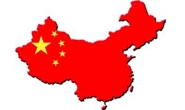Government/Policy

April 10, 2018
China to "Open Up," Declares Xi Jinping
Written by Sandy Williams
President Xi Jinping announced today that China will significantly open access to its economy including lowering import tariffs on automobiles and recognizing and enforcing intellectual property rights.
In a speech at the Boao Forum for Asia Annual Conference, Xi promoted his country as a leader in the global free market as the Trump administration threatened tariffs in what appeared to be an escalating trade war.
Xi’s speech, however, relieved some of that tension, addressing most of the U.S. trade concerns in a declaration of “a new phase of opening-up” that will “deliver benefits as soon as possible to all enterprises and people in China and around the world.”
“China relied in the past on creating favorable policies for itself,” Xi said, and that going forward the country will “rely more on improving our investment environment, we will increase our alignment with international rules, and our intellectual property protection.”
Xi did not directly address the looming trade war or Trump himself, but called for respect and dialogue that will provide win-win results.
The speech coincided with Beijing’s filing of a complaint today with the World Trade Organization opposing the U.S. tariffs on steel and aluminum.
“Human society is facing a major choice to open or close, to go forward or backward,” Xi told investors at the forum. “In today’s world, the trend of peace and cooperation is moving forward and the Cold War mentality and zero-sum-game thinking are outdated.”
Xi said that China does not seek trade surpluses. “We have a genuine desire to increase imports and achieve greater balance of international payments under the current account,” he said.
China will not threaten anyone else, attempt to overturn the existing international system, or seek spheres of influence, no matter how much progress it has made in development, said Xi in his comments.
Xi’s speech was taken by many as a hopeful sign that a major trade war can be averted through negotiation, although some were skeptical since a firm timeline was not offered. Other commentators called it a “re-run” of previous speeches. The scope of Xi’s comments was heartening to some.
“This was quite a surprise amid worries that there may be no solution to U.S.-China trade frictions,” said Yukino Yamada, senior strategist at Daiwa Securities in a comment to Reuters. “Lowering tariffs on autos is significant, given it is one very big industry and given difficult issues surrounding EVs. We now have to see how Trump will react, but markets will surely react positively on rising hopes that a trade war will be averted.”
Yoshinori Shigemi, Global Markets Strategest at JP Morgan, Tokyo, said, “His comments seem to have covered all the major issues the U.S. has raised, including intellectual property and liberalization of domestic markets. Xi threw the ball into the U.S. court, but it appears China is laying the groundwork to achieve an agreement with the U.S.”
“President Xi’s speech could create a very good platform to launch U.S.-China dialogue at the WTO to find a deal on intellectual property rights,” said economist Rajiv Biswas of IHS Markit.“This would be a victory for the world trading system and an important step away from the abyss of rising global protectionism.”







